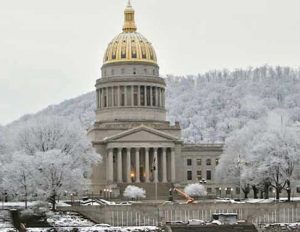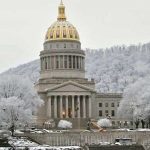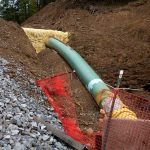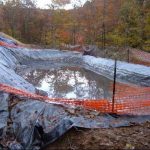- Like
- Digg
- Del
- Tumblr
- VKontakte
- Buffer
- Love This
- Odnoklassniki
- Meneame
- Blogger
- Amazon
- Yahoo Mail
- Gmail
- AOL
- Newsvine
- HackerNews
- Evernote
- MySpace
- Mail.ru
- Viadeo
- Line
- Comments
- Yummly
- SMS
- Viber
- Telegram
- Subscribe
- Skype
- Facebook Messenger
- Kakao
- LiveJournal
- Yammer
- Edgar
- Fintel
- Mix
- Instapaper
- Copy Link
Implementation of 2013 study recommendations still needed
As we have in years past, WV-SORO will again be pushing for legislation to have the property rights of surface owners recognized and respected, to increase their chances of owning some of the minerals under them, and to deal with orphaned wells and other environmental problems. We will also be actively opposing legislation the industry introduces (out of its sense of entitlement) that will harm the interests of surface owners (including some fortunate few of whom are also small mineral interest owners).
Some think that the recent election results will hurt our chances on those fronts. We disagree. WV SORO has always tried to be non-partisan. Rural Republican legislators have generally been supporters of our positions. Our issues are in essence property rights issues favored by many of those just elected.
Most of our success is a result of the actions taken by members of WV SORO and allied organizations expressing their concerns and making their voices heard by their legislators. As always, we’ll be sending out alerts and updates once we the legislative session starts and we have actual bill numbers. However, feel free to start contacting your legislators now to urge their support.
Here is a more detailed look at our 2017 legislative priorities:
When the Horizontal Well Control Act was passed in 2011, surface owners did not get many protections. Instead the Act required the Department of Environmental Protection (DEP) to conduct studies on various impacts of horizontal drilling on surface owners, and safeguards were supposed to be enacted if the studies showed the need. When the results of the studies were released in 2013, the DEP reported to the Legislature that additional protections were needed “to reduce potential exposures” and” to provide for a more consistent and protective safeguard for residents in affected areas.” However, these safeguards and other recommendations from the studies, which include fence-line monitoring for noise, dust, and other air emissions from horizontal drilling sites, were never implemented.
Ownership of the surface and ownership of the minerals should never have been separated. Almost everyone agrees this was a bad idea. WV SORO supports a “West Virginia Land Reunion”, and we have even recorded a song about it for you to listen to at wvsoro.org/west-virginia-land-reunion-song/.
This session, the Legislature should pass a bill that begins to reverse the trend of separate ownership by giving surface owners a first chance to own any interest in the minerals under their land that are sold for non-payment of property taxes.
Pass a bill that uses funds owed to missing or unknown mineral owners to plug orphaned wells.
The “Oil and Gas Reclamation Fund” was established to plug the thousands of oil and gas wells that have been orphaned over the last century by oil and gas drillers who went out of business without plugging them. As development of the Marcellus Shale and other shale formations continues to drive smaller drilling companies out of business the problem is likely to get worse. From 2010 to 2014, there was only enough money in the fund to plug six wells a year. However, the increase in Marcellus Shale and other unconventional drilling has also resulted in many more suits being filed to partition mineral tracts owned by multiple heirs, and lots of money being held by special receivers for heirs who cannot be found. If the heirs do not turn up in 5 years the money goes to the state Treasurer to be deposited into the General Revenue fund. Our bill would send that money to the Oil and Gas Reclamation Fund instead, making it available to plug orphaned wells.
Pass a bill to require a forfeited bond to fix the problem on the land that caused the forfeiture.
The money that goes into the Oil and Gas Reclamation Fund comes from two sources. One of these is a small fee drillers pay when they apply for new drilling permits. Money also goes into the fund when the DEP forfeits the bond of a driller who has not plugged a well that should be plugged or causes some other problem. This does not happen very often.
Currently, the DEP keeps a list of orphaned wells and prioritizes them according to how much of a problem they are, and DEP has to plug them in that order. This is generally not a bad way to prioritize the limited amount of funding available to plug the thousands of orphaned wells in West Virginia. However, when a landowner goes to the trouble to get the DEP to forfeit a drillers’ bond because of a problem well on their land, we believe that the the money should be used first to fix the problem on landowner’s land that caused the bond to be forfeited.
Click here for more on these issues and proposals, and to listen to “the West Virginia Land Reunion Song”.





